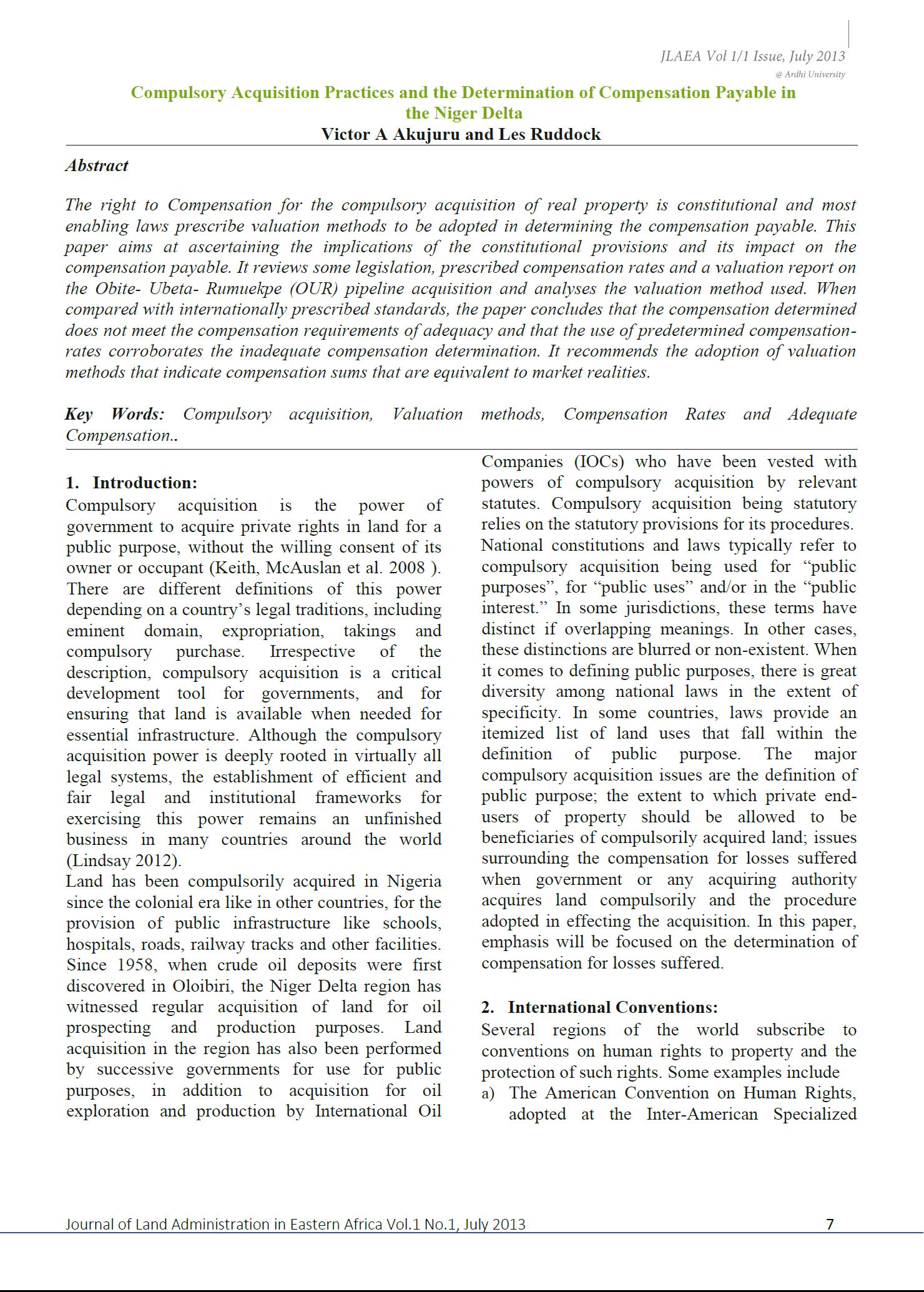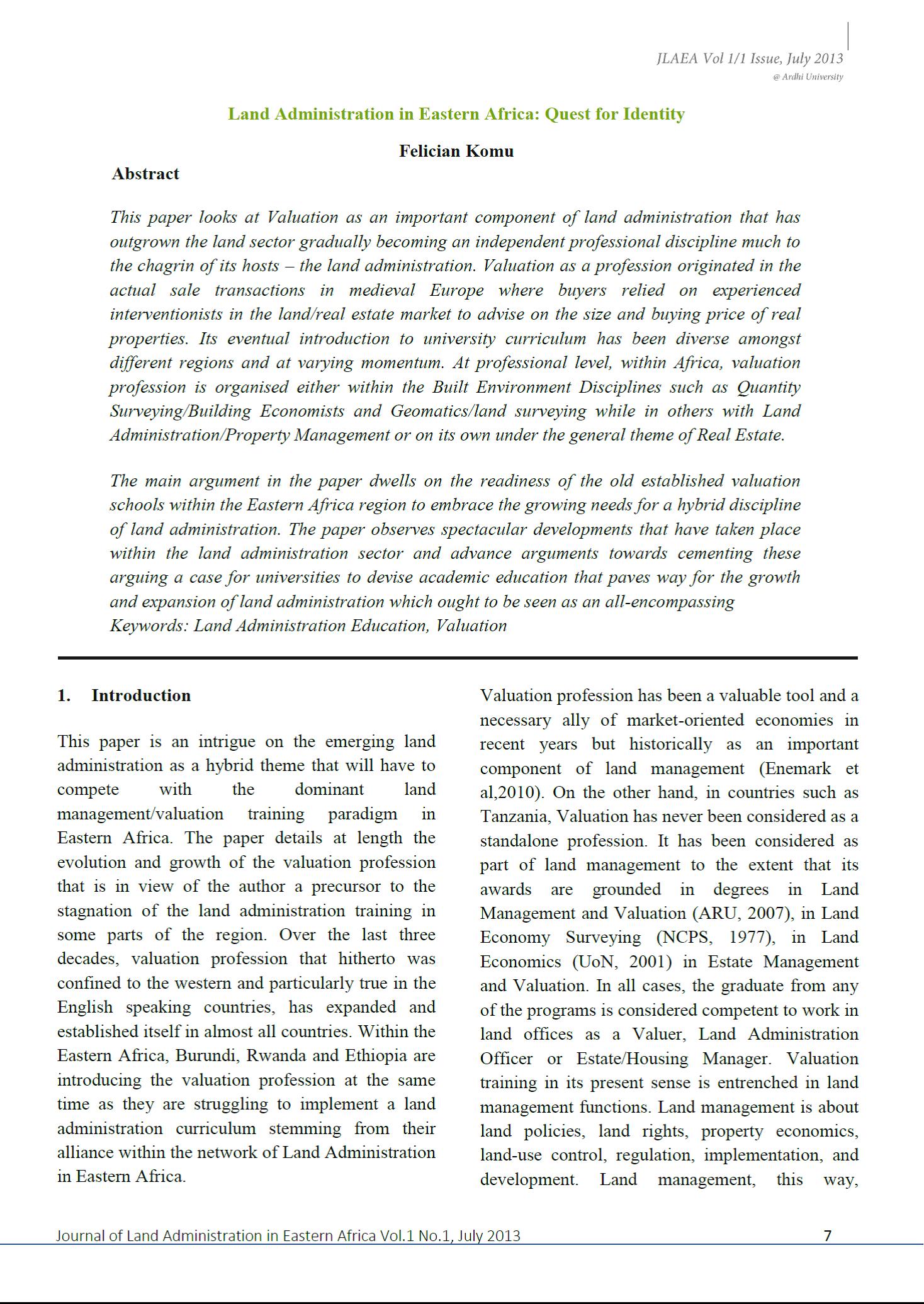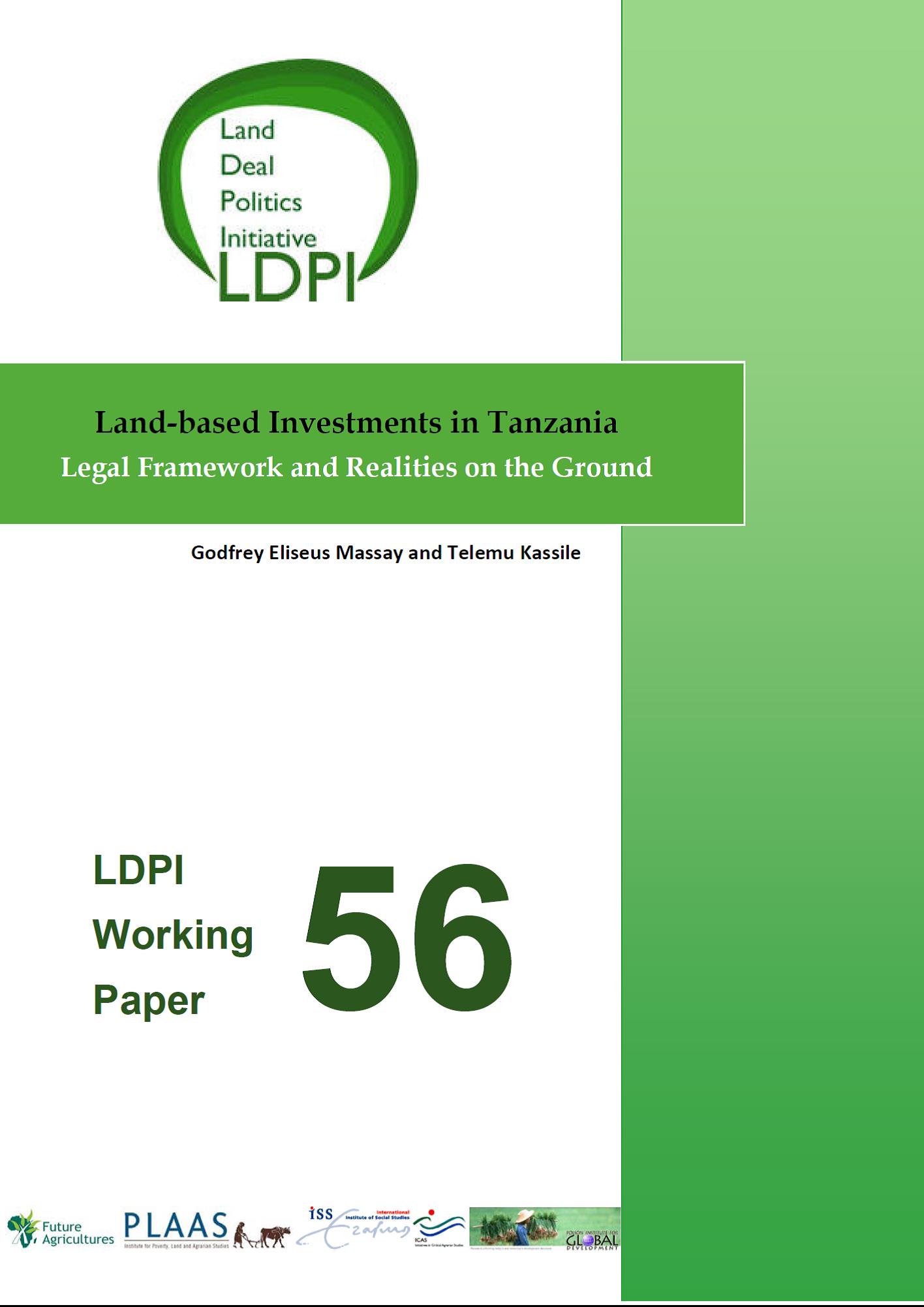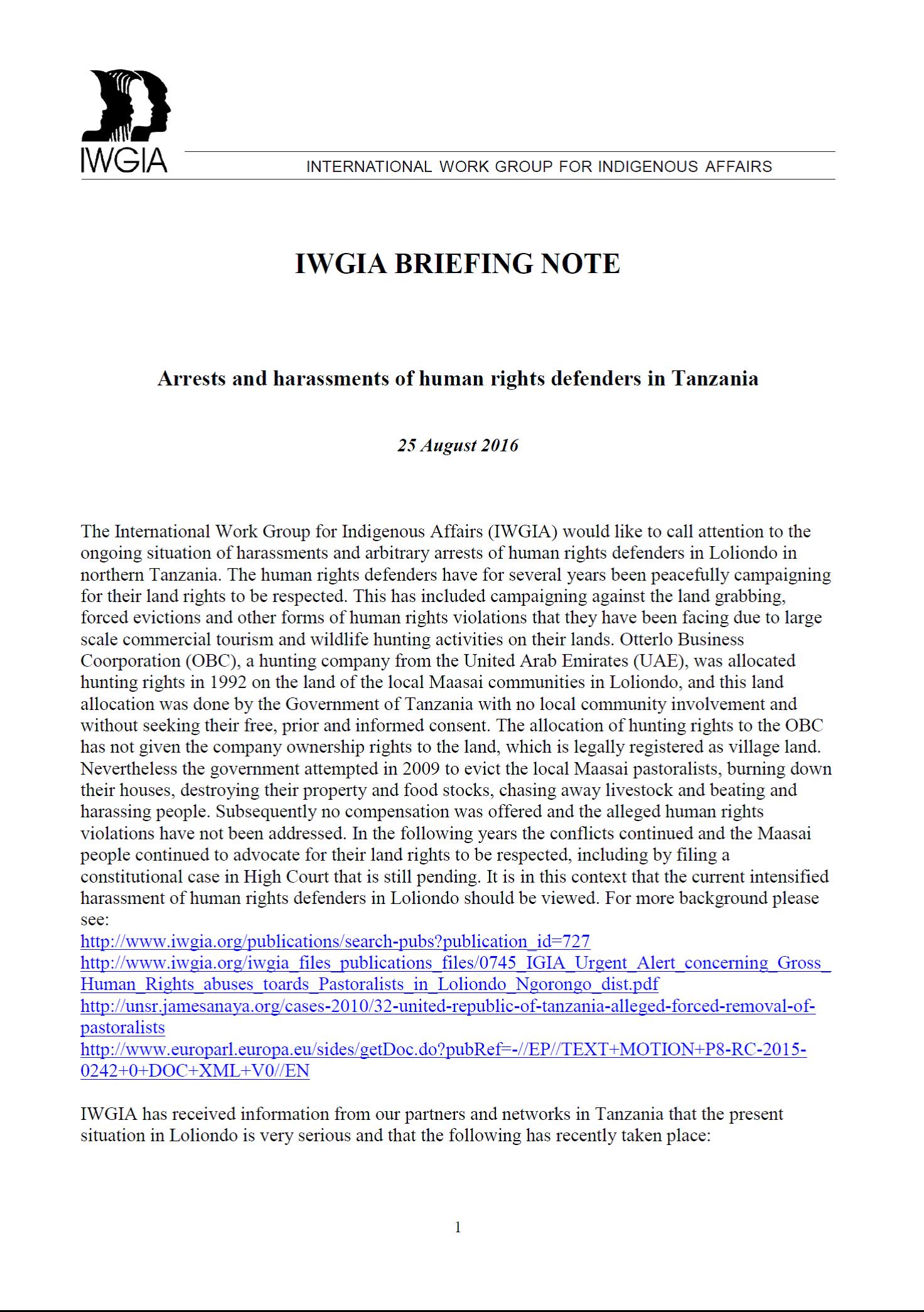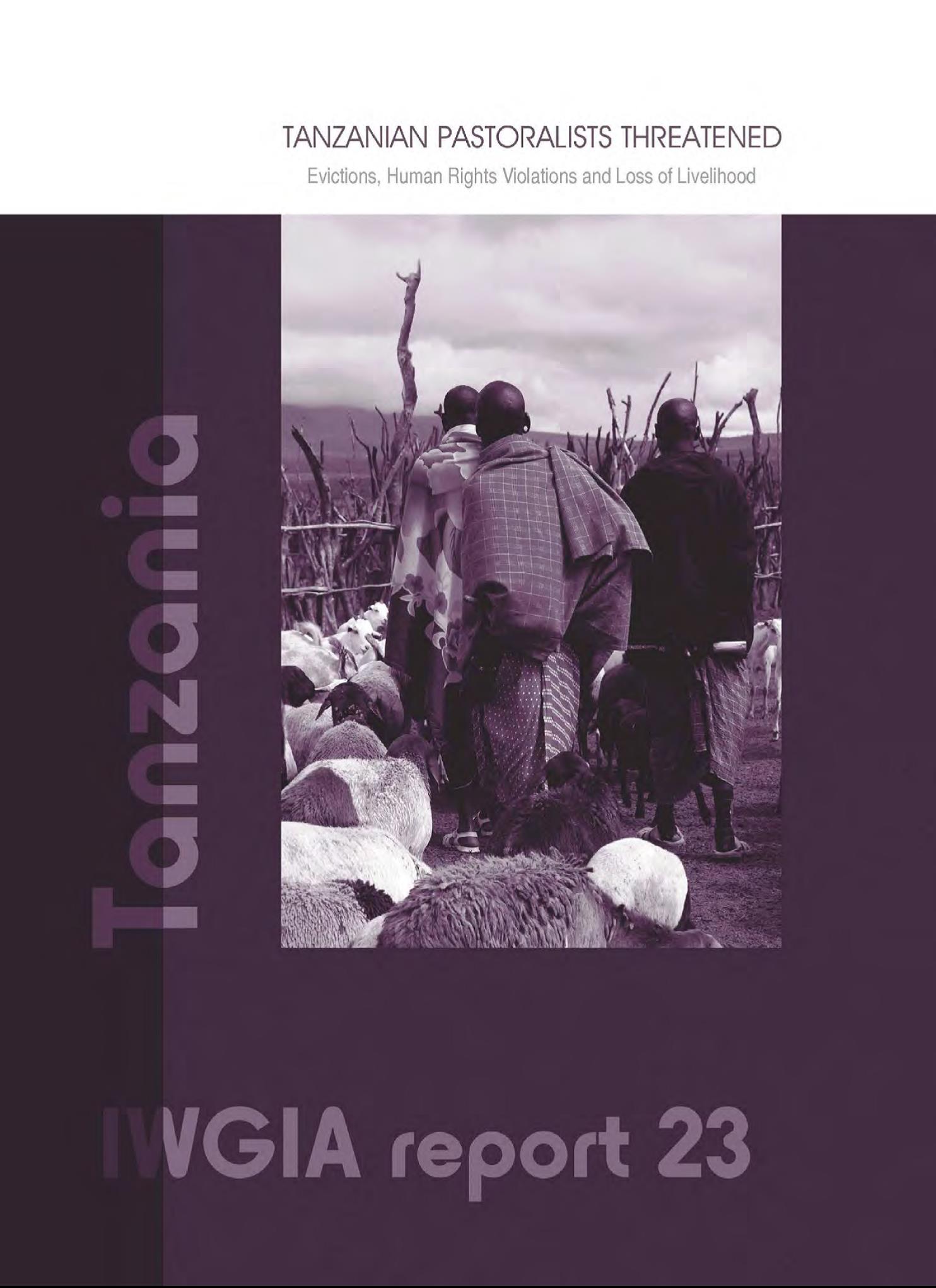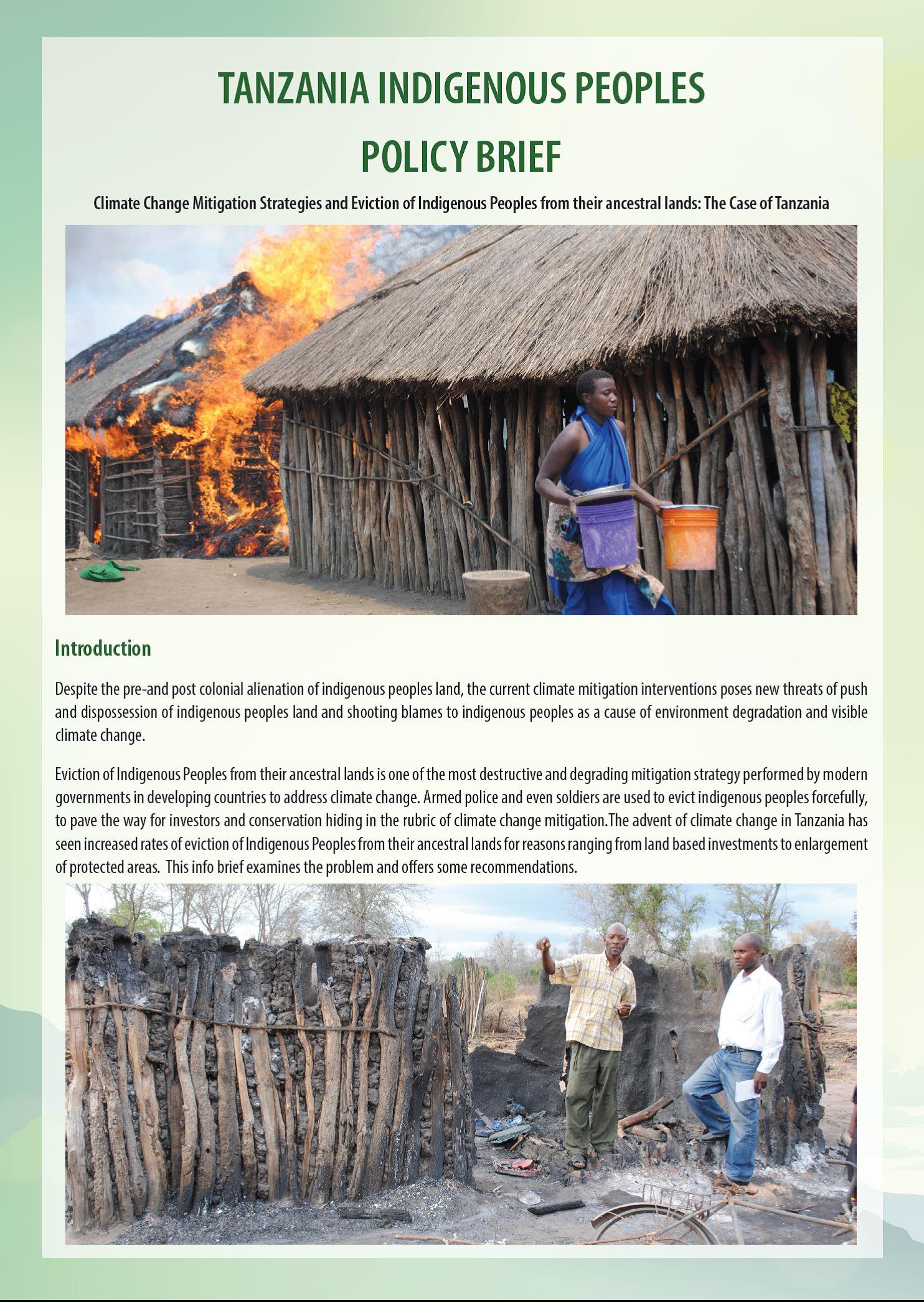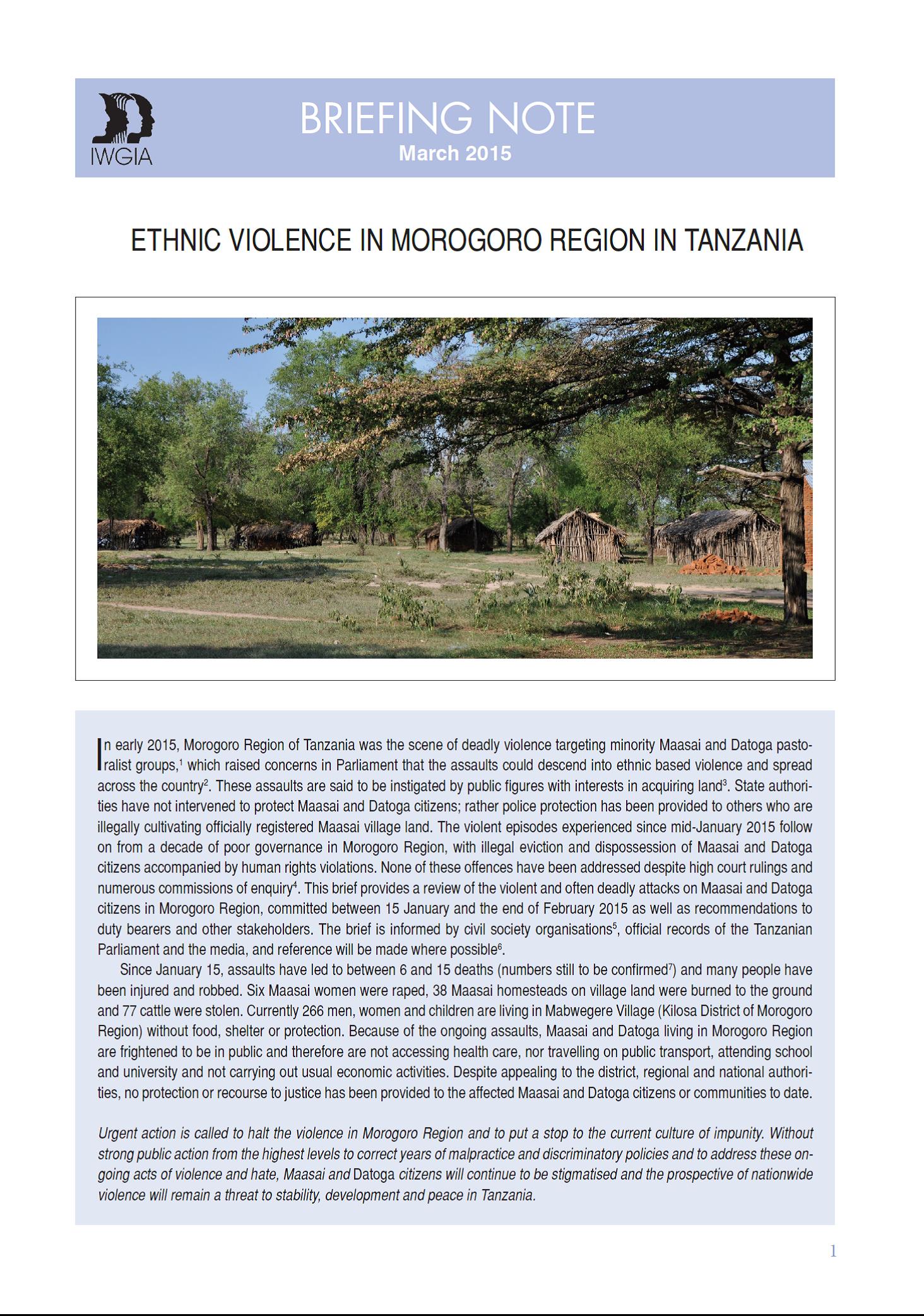Godfrey Eliseus Massay is a lawyer and land tenure specialist.He has eight years of experience working on land rights and in the natural resource sector in Tanzania, and has written and published numerous articles on land rights in both national and international academic journals.
Details
Location
Contributions
Displaying 111 - 120 of 218Compulsory Land Acquisition in Post War Sub-Saharan Africa: Some Lessons from Burundi
Gaining access to private lands in war-torn societies is a problem that confronts many governments, including Burundi when implementing public projects. Government officials hastily acquired private lands while implementing projects which are not always for public interests. Using the case study approach, the study explored what happened when land was acquired to erect a new Presidential Palace at Gasenyi area.
Compulsory Acquisition Practices and the Determination of Compensation Payable in the Niger Delta
The right to Compensation for the compulsory acquisition of real property is constitutional and most enabling laws prescribe valuation methods to be adopted in determining the compensation payable. This paper aims at ascertaining the implications of the constitutional provisions and its impact on the compensation payable. It reviews some legislation, prescribed compensation rates and a valuation report on the Obite- Ubeta- Rumuekpe (OUR) pipeline acquisition and analyses the valuation method used.
Land Administration in Eastern Africa: Quest for Identity
This paper looks at Valuation as an important component of land administration that has outgrown the land sector gradually becoming an independent professional discipline much to the chagrin of its hosts – the land administration. Valuation as a profession originated in the actual sale transactions in medieval Europe where buyers relied on experienced interventionists in the land/real estate market to advise on the size and buying price of real properties. Its eventual introduction to university curriculum has been diverse amongst different regions and at varying momentum.
Journal of Land Administration in Eastern Africa
The Journal of Land Administration in Eastern Africa (JLAEA) is publication of the Land Administration Unit that was set up at ARU in November 2009. JLAEA mirrors the aspirations of the Land Administration Unit at Ardhi University (ARU) whose mission is to ensure quality education and training, research, scientific publications, information dissemination, documentation and public services through integrated cross disciplinary team work in land administration.
Land-based Investments in Tanzania
Beginning in the mid-1970s through to the 1980s, Tanzania experienced a severe socio-economic crisis. In an attempt to turn things around the abating economy and accelerate economic growth, the government embarked on a broad range of radical policy, legislation, and institution reforms, which opened doors for foreign direct investments (FDIs) and further initiatives have been taken to create an enabling environment for investments to flourish in the country.
Arrests and harassments of human rights defenders in Tanzania
This briefing note call attention to the ongoing situation of harassments and arbitrary arrests of human rights defenders in Loliondo in northern Tanzania.It offers an account of the recent events taking place in the area and background information.
IWGIA believes that these developments are a cause of great concern. The detentions, harassment and trumped up charges undermine civil society and other stakeholders, limiting their options to carry out human rights work in Tanzania.
Tanzania Pastoralists threatened: eviction, human rights violations and loss of livelihood
The report explores the evictions of pastoralists and other conflicts over pastoralists’ land in Tanzania, with focus on the past decade.
Although most of these evictions and land based conflicts have been documented, the associated human and legal rights violations have increasingly lead to concern amongst civil society. A study was therefore commissioned to collate the available information as well as to visit affected pastoralist communities to assess the current situation faced by pastoralists in the country.
Climate Change Mitigation strategies and evictions of indigenous peoples from their ancestral land.
Eviction of Indigenous Peoples from their ancestral lands is one of the most destructive and degrading mitigation strategy performed by modern governments in developing countries to address climate change. Armed police and soldiers are used to forcefully evict indigenous peoples to pave the way for investors and conservation in the name of climate change mitigation.
Ethnic Violence in Morogoro Region in Tanzania
In early 2015, Maasai and Datoga citizens living in the Morogoro region of Tanzania were victims of deadly, ethnic violence. According to reports from local media, the assaults were instigated by public figures interested in acquiring land, and state authorities have not intervened to protect Maasai citizens. Police protection has instead been given to others who are illegally cultivating officially registered Maasai land.
The capacity of local communities to monitor biodiversity and resources in Madagascar, Nicaragua, Philippines and Tanzania
This case study focuses on the capacity of local communities to monitor biodiversity and resources in Madagascar, Nicaragua, Philippines and Tanzania. It makes a controlled comparison between local community monitoring and trained scientists’ monitoring and conclude that local and indigenous communities generate similar and equally good outputs as the trained scientists, and are much more cost efficient. The cases suggest that it is fully possible to build a cheap and effective MRV system based on community monitoring of Non-Carbon Benefits



